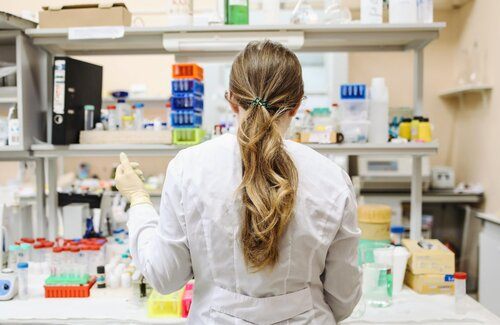What’s The Difference Between a Pharmacist and a Pharmacologist? How Do They Help With Eyecare?
What’s the difference between a pharmacist and a pharmacologist?
Here’s a brief summary of each:
-
Pharmacology, a biomedical science, is broadly defined as the study of drugs and their effects on living organisms. It is a highly interdisciplinary field that draws from biochemistry, biophysics, cellular and molecular biology, endocrinology, and neuroscience.
-
Pharmacy, a health services profession, is concerned with the clinical application of the principles learned from pharmacology. A pharmacist dispenses prescription medications and advises patients on their use.
The terms may not seem very different — pharmacist and pharmacologist — but there are a number of key differentiators between the two professions. Understanding these differences may help you achieve your eyecare goals, by knowing who to go to for your eyedrops, and who to ask about the science behind those eyedrops.
“Pharmacology, a biomedical science, is broadly defined as the study of drugs and their effects on living organisms,” says Jennifer Steger, PhD, Nanodropper’s Chief Scientific Officer and resident pharmacologist. She further describes pharmacology as a highly interdisciplinary field that draws from biochemistry, biophysics, cellular and molecular biology, endocrinology, and neuroscience.
In contrast, pharmacy, a health services profession, is concerned with the clinical application of the principles learned from pharmacology. A pharmacist dispenses prescription medications and advises patients on their use.

Pharmacists can play a vital role when it comes to helping people with their medicated eyedrops.

“With eye medications, because it’s so technical, it does require a lot of explaining,” says Lawrence Troxell, PharmD, a trained pharmacist and Clinical Operations Manager for Kaiser Permanente in Santa Clara, Calif. “We provide visual aids to instruct proper use of eye medications. Ultimately I think patients have a difficult time administering eyedrops.”
So to boil it down, pharmacologists work within the interdisciplinary science of studying drugs and how they interact with us humans, and pharmacists work with patients to provide those drugs and guidance on adherence.
“Pharmacists are engaged in direct patient care, whereas pharmacologists are involved in scientific research that leads to improvements in patient care,” says Dr. Steger.
Pharmacologists and Clinical Research
Steger will bolster Nanodropper’s mission to provide patients with cheaper eyedrops through scientific research of her own. Dr. Steger will accomplish this with upcoming clinical trials designed to advance decades of research demonstrating that smaller eyedrops are just as effective as the oversized eyedrops we’re currently accustomed to, and incorporating the Nanodropper adaptor into that research.
“I’m excited to further enhance Nanodropper’s ability to incorporate smaller eyedrops into regular patient care,” says Dr. Steger.
One common theme that runs through most research regarding smaller eyedrops is the decrease in potential side effects. This will be one of the goals of Dr. Steger’s research with Nanodropper — to explore how the adaptor will aid in administering smaller eyedrops, and the potential reduction in side effects for common medicated eyedrops. This has the potential to directly impact the pharmacist-patient relationship and patient care, as patients are already seeking guidance from their pharmacists on potential eye medication side effects.
Pharmacists and Patient Advocacy
“Patients often want to know about possible side effects,” says Troxell. “The most common reported side effect with eye medications is stinging. We track patient outcomes and report any adverse side effects that patients experience to the FDA.”
In addition to dispensing medications and counseling patients on usage, pharmacists also take part in other processes relating to prescription drugs, such as purchasing, contracting, and even prescribing under some circumstances. Troxell says pharmacists also must advocate for patients at times with regard to reimbursement.
“It’s important to know about reimbursement systems, especially for expensive drugs and products.”
For those who might need help paying for their prescription drugs, GoodRx is a quick, easy system that may provide substantial discounts. For those who are on Medicare and might need help, visit this link for some helpful tips.
And for those who might want to try smaller eyedrops that will save you money in the process, Nanodropper may help. When filling your prescription eye medications, ask your pharmacist if the Nanodropper is a good fit for you.
